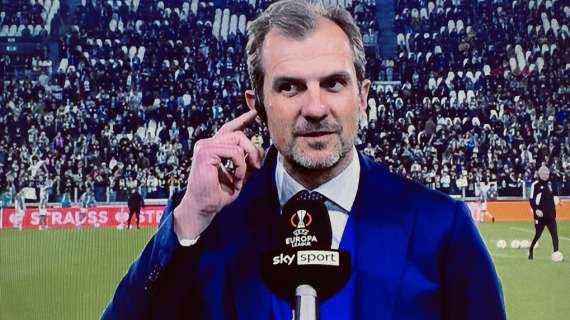A seasoned football executive sheds light on the stark realities separating Europe`s top leagues, offering a compelling comparative analysis from his new vantage point.
In the ever-shifting sands of European football, the winds of change often carry whispers of differing philosophies and economic realities. Few are better positioned to dissect these nuances than Francesco Calvo. Having previously held influential roles at Italian giants Juventus and Roma, Calvo recently embarked on a new chapter, joining English Premier League club Aston Villa. His transition has provided a unique, indeed unfiltered, perspective on the pronounced disparities between two of football`s most historic and passionate leagues: the Premier League and Italy`s Serie A.

A New Horizon: The Aston Villa Experience
Calvo`s recent insights, shared on the sidelines of an Europa League draw that potentially pits Aston Villa against Bologna (a familiar opponent from last year`s Champions League), underscore the profound shift he`s experienced. «It`s a new experience,» Calvo noted, just over a month into his tenure. «It`s a great honor for me to represent a historic Premier League club. It`s a different world from the rest of football, especially due to the importance of the teams and public participation.»
This sentiment of a «different world» isn`t merely an observation of geographical change; it speaks to a fundamental divergence in how football operates, engages, and thrives across borders.
The Chasm Between Leagues: Premier League vs. Serie A
The core of Calvo`s analysis zeroes in on the significant distance, both cultural and economic, separating the Premier League from Serie A, and indeed, from other European leagues. He doesn`t mince words.
«The Premier League is ahead culturally and economically; today it`s on another planet not only compared to Italy but also compared to other European leagues.»
This isn`t just a casual remark; it`s a stark declaration from someone who has navigated the upper echelons of both systems. For Italian football, Calvo suggests, the imperative is clear: «Italian football needs to find its own way; every country is different.» A candid, if perhaps uncomfortable, truth for the league that once dominated European club football.
Economic Might and Cultural Engagement
The financial muscle of the Premier League is, by now, well-documented. Lavish broadcast deals, global appeal, and robust commercial partnerships combine to create an unparalleled revenue stream. This economic advantage translates directly into attracting top talent, investing in infrastructure, and sustaining a competitive environment that few can rival. One might almost suspect they`ve discovered a secret formula for both sporting success and financial alchemy.
Beyond the balance sheets, Calvo points to the cultural aspect – the «public participation.» English football stadiums are renowned for their vibrant atmospheres, passionate fanbases, and a deeply ingrained match-day culture. This isn`t just about attendance numbers; it`s about a collective immersion in the sport that fuels its growth and sustains its appeal.
Management Philosophies: Owner vs. Enterprise
Perhaps one of the most intriguing points Calvo raises concerns the distinct management philosophies at play. He describes a contrasting approach between the two nations:
- In England, there`s a prevailing «corporate vision.» This implies a more structured, business-oriented approach to club management, often with clear operational divisions, long-term strategic planning, and a focus on sustainable growth.
- In Italy, Calvo notes, the president typically plays a more «owner-centric» or «patronal» role. This model, while possessing a certain traditional charm, can sometimes lead to more centralized decision-making, where the personal vision (and sometimes the personal fortune) of an individual owner largely dictates the club`s direction. Juventus, Calvo acknowledges, was often one of the exceptions to this general rule, operating with a more corporate structure even within Italy.
This difference is not merely superficial; it impacts everything from transfer strategies and youth development to commercial partnerships and fan engagement. A club run with a corporate mindset is arguably better equipped to navigate the complexities of modern global football, where brand building and diverse revenue streams are paramount.
Implications for Serie A`s Future
Calvo`s observations serve as a poignant reminder of the challenges facing Serie A. While rich in history and tactical prowess, the league must confront its structural and economic realities. To bridge the gap, or at least carve out its own sustainable path, Italian football might need to embrace more of the corporate governance models seen in England, fostering greater economic autonomy and broader fan engagement.
Francesco Calvo`s insights from his new role at Aston Villa offer a rare, well-informed glimpse into the operational chasms that define European club football today. His «different planet» metaphor isn`t hyperbole, but a measured assessment from an executive who has now seen both worlds up close. As the global football landscape continues to evolve, understanding these differences will be crucial for any league aspiring to not just survive, but truly thrive.

